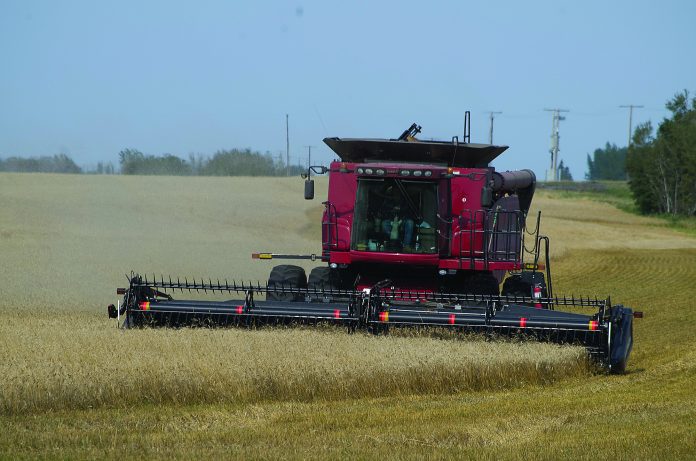
Some heroes have capes. Others have wings.
The Western Grains Research Foundation (WGRF) has launched a new campaign, called ‘Field Heroes,’ to increase awareness of beneficial insects. The campaign encourages growers and agronomists to consider beneficial insects before spraying insecticides.
“Beneficial insects play a vital pest control role in cropping systems. It’s time to give them more awareness and attention,” said Pat Flaten, research programmer with WGRF in a press release.
Insects such as lady beetles, ground beetles, lacewings, damsel bugs and several parasitoids help keep pests away.
According to entomologist John Gavloski, this can be good for the economy and the environment.
“When we talk about using them, we’re not talking about releases of them, generally speaking,” he said.
“We’re talking about preserving them and getting the maximum value out of them. Certain predators and parasitoids can eat an enormous amount of prey or pest insects on a daily basis. Over time that can help to keep them well below threshold levels.”
Those beneficial insects are why there aren’t breakouts of pests every year, he said.
That means spraying isn’t necessary annually.
“There’s a small platoon of beneficial insect that are already working to help keep the yields high,” Gavloski said.
“By indiscriminately using insecticides when they may not be absolutely necessary, if you’re using a broad spectrum product, you take out all those natural enemies.”
That can create problems with things like aphids in the short term, and other pests in the long term. Without their natural predators around, they’re much more likely to come back stronger.
“We really encourage people to scout their fields and know what’s there,” Gavloski said. “If they do have a pest that is at economic levels, it makes sense to use an insecticide. But if there is no insects of threat, don’t be spraying just in case.”
Beneficial insects can also be heroes for backyard gardeners. The key is creating a habitat that’s attractive to the critters.
“The same things that apply to the field crops apply to a garden. If you have enough of these predators, it can certainly help reduce your pest levels,” Gavloski said.
“Having good nectar sources available year round will encourage parasitic wasps. It’s easier to do in a garden, because it means having a variety of flowering plants throughout the season. That would draw in some of the parisatoids.”
That’s easier in a garden than say, a field. But farmers can also encourage insects by planting wild vegetation around their fields.
By watching when they spray and encouraging wild plants nearby their fields, farmers can help themselves and the ecosystem.
“It can save farmers a lot of money,” Gavloski said. “One of our concerns is that people could be inadvertently reducing yields by wiping out some of the beneficial insects. In the cast of canola growers, one of our concerns is if people are applying broad spectrum insecticides to the flowering crop, they can inadvertently decrease their yield.”
This is because pollinated canola has better yields. Un-pollinated canola will still do fine, but not as well as pollinated plants.
“You lose that yield boost the pollinators give it if you spray an insecticide at the wrong time,” Gavloski said.
“We’re trying to help the producers maximize their yields, and at the same time preserve the bio controls keeping some of the pest in check. It ends up being good economically and good for the environment. It’s good all around.
For more information on beneficial insects or the field heroes program, visit www.fieldheroes.ca

